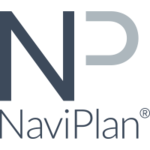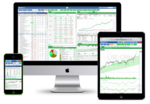Description

Asset Manager

Ledgy
Comprehensive Overview: Asset Manager vs Ledgy
Here's a comprehensive overview of Asset Manager, Ledgy, and SharePad, focusing on their primary functions, target markets, market share, and key differentiators:
1. Asset Manager
a) Primary Functions and Target Markets:
- Primary Functions: Asset Manager software is typically designed to aid in the management of investment portfolios, including equities, bonds, mutual funds, and other financial assets. The software provides tools for performance tracking, risk analysis, compliance, and reporting, often with real-time data integration and analysis.
- Target Markets: The primary users are institutional investors, wealth managers, financial advisors, and occasionally, retail investors who seek advanced tracking and reporting features for their investment portfolios.
b) Market Share and User Base:
- Asset Manager software has a significant market share within the financial services industry, particularly among institutional investors and large financial advisory firms. The user base is generally smaller but highly specialized compared to broader financial software markets, due to the niche nature of investment management.
c) Key Differentiating Factors:
- Asset Manager solutions often differentiate themselves based on the depth of their analytical tools, integration capabilities with existing financial systems, and user interface designed for professional users.
- Specialized features like risk management tools, compliance modules, and customizable reporting are common differentiators.
2. Ledgy
a) Primary Functions and Target Markets:
- Primary Functions: Ledgy is a platform focused on equity management, providing tools to manage cap tables, employee stock ownership plans (ESOPs), and investor relations. It facilitates processes like equity calculations, scenario modeling, and reporting.
- Target Markets: Ledgy primarily targets startups, scale-ups, and venture-backed companies that need to efficiently manage complex equity data, shareholder communication, and employee ownership plans.
b) Market Share and User Base:
- Ledgy's market share is concentrated primarily in the startup and scale-up ecosystem, with a strong presence in tech hubs across Europe and increasingly in other global startup centers. The user base consists mainly of CFOs, financial officers, HR departments, and founders of young and rapidly growing companies.
c) Key Differentiating Factors:
- Ledgy distinguishes itself with an intuitive user interface tailored to non-financial users, making it accessible for startups and small businesses without dedicated financial staff.
- Its unique integration with legal and financial advisors to streamline equity transactions and its adaptability to different regulatory environments is a significant advantage.
3. SharePad
a) Primary Functions and Target Markets:
- Primary Functions: SharePad is a comprehensive investment analysis and portfolio management tool aimed at individual investors. It provides data on stocks, funds, ETFs, and other securities, along with features like charting, screening, and analysis tools.
- Target Markets: SharePad targets retail investors and self-directed investment enthusiasts who require detailed data and analysis capabilities to make informed investment decisions.
b) Market Share and User Base:
- SharePad holds a competitive position within the UK market, especially among retail investors who seek in-depth analysis tools without relying on institutional-grade software. The user base is made up largely of individual investors rather than professional or institutional users.
c) Key Differentiating Factors:
- SharePad excels in offering an affordable yet powerful suite of tools for individual investors, emphasizing data visualization, usability, and educational resources.
- It offers a rich database and analysis features typically accessible at a higher cost in institutional platforms, making it popular among more informed amateur investors.
Comparative Summary
- Target Market Positioning: Asset Manager targets institutional clients, Ledgy focuses on startups, and SharePad is designed for individual investors.
- Functionality Focus: Asset Manager offers high-end portfolio management features; Ledgy is centered around equity and cap table management; SharePad provides investment research and analysis tools.
- Differentiators: Asset Manager appeals through its professional-grade functionalities, Ledgy through ease of use for startups, and SharePad with accessible advanced data and visualization at a lower cost to individuals.
- Market Share: Asset Manager has a prominent presence in institutional investment circles, Ledgy is growing within startup ecosystems, and SharePad is well-regarded among UK retail investors.
In summary, each solution is designed to address specific needs within investment management and equity handling, catering to diverse segments of the financial and investment industry.
Contact Info

Year founded :
2005
Not Available
Not Available
Bangladesh
http://www.linkedin.com/company/assetmanagerlimited

Year founded :
2017
+41 44 585 21 23
Not Available
United Kingdom
http://www.linkedin.com/company/ledgy
Feature Similarity Breakdown: Asset Manager, Ledgy
When comparing Asset Manager, Ledgy, and SharePad, we can break down their features in several key areas. Note that these products might evolve over time, and specifics can vary based on versions and updates. Here’s a general comparison based on typical features of such platforms as of the last data point in 2023:
a) Core Features in Common:
-
Portfolio Management:
- All three provide tools to manage financial assets and portfolios, track performance, and generate reports.
-
Data Visualization:
- Visualization tools such as charts and graphs to help users understand portfolio performance over time.
-
Reporting and Analytics:
- Features for generating comprehensive reports and analytics on portfolio holdings, transactions, and performance metrics.
-
Integration Capabilities:
- Integration with various data sources for importing financial data, though the extent and specifics might vary.
-
Security and Compliance:
- Basic security measures to protect user data and ensure compliance with relevant regulations.
b) User Interface Comparison:
-
Asset Manager:
- Typically designed for robust, professional environments with a focus on in-depth data analysis.
- The interface might lean towards detailed dashboards and customizable layouts, catering to more professional and institutional users.
-
Ledgy:
- Often focuses on a modern, clean, and user-friendly interface, appealing to startups and growing businesses.
- Emphasizes ease of use, intuitive navigation with a focus on equity management.
-
SharePad:
- Generally includes a user-friendly interface designed for individual investors or small-scale investors, focusing on simplicity and ease of access.
- Likely features straightforward navigation with easy-to-read data visualization, often preferred by retail investors.
c) Unique Features:
-
Asset Manager:
- May offer advanced analytics and predictive modeling features that are tailored for institutional investors.
- Potentially includes sophisticated risk management tools and scenario analysis.
-
Ledgy:
- Known for its specialization in equity management, particularly useful for managing employee stock options and cap table management.
- Provides specific tools for tracking equity transactions and stakeholder communications, which might not be a focus for purely financial asset managers.
-
SharePad:
- Likely includes a strong focus on stock market news and insights tailored for retail investors, which might not be as prominent in the other tools.
- Potentially provides real-time data feeds and a broader array of market indicators to support individual trading decisions.
Each tool caters to slightly different user bases and needs, hence the variations in features and interfaces. Asset Manager might appeal to institutional users, Ledgy to startup and equity managers, and SharePad to retail investors looking to manage personal investment portfolios. Always check the latest updates and individual product offerings, as vendors frequently introduce new features and improvements.
Features

Not Available

Not Available
Best Fit Use Cases: Asset Manager, Ledgy
To appropriately describe the best fit use cases for Asset Manager, Ledgy, and SharePad, let's break down each of these tools and analyze their strengths, preferred scenarios, and suitable industry verticals or company sizes.
Asset Manager
a) For what types of businesses or projects is Asset Manager the best choice?
- Asset Management Firms: Especially those dealing with large portfolios of investments, such as real estate, stocks, bonds, or other financial products.
- Corporate Finance Departments: Companies with extensive fixed assets that need regular tracking and management.
- Construction and Engineering Firms: Where there's a need to manage heavy machinery and equipment efficiently.
- Manufacturing Companies: Managing a wide array of machinery, tooling, and operational equipment.
d) How do these products cater to different industry verticals or company sizes?
- Industry Vertical: Predominantly finance, real estate, construction, and manufacturing.
- Company Size: Typically larger enterprises or growing mid-sized businesses with significant asset holdings.
Ledgy
b) In what scenarios would Ledgy be the preferred option?
- Startups: Particularly useful for early-stage companies that need to manage cap tables, employee stock options, and fundraising more efficiently.
- Scale-ups: Businesses transitioning from startup to growth phase that require more structured equity management.
- Investors and VCs: For managing their equity portfolios and assessing the value of their investments in various startups.
d) How do these products cater to different industry verticals or company sizes?
- Industry Vertical: Primarily tech startups, but useful for any high-growth company using equity incentives.
- Company Size: Mainly small to medium-sized enterprises (SMEs) and high-growth companies.
SharePad
c) When should users consider SharePad over the other options?
- Individual Investors: Serious individual investors or trading enthusiasts looking for comprehensive market data and analysis.
- Financial Analysts: Professionals who require detailed stock analysis tools and real-time data.
- Investment Clubs: Groups that manage portfolios collaboratively and need reliable research tools.
d) How do these products cater to different industry verticals or company sizes?
- Industry Vertical: Financial services, investment management, personal finance.
- Company Size: Largely targeted towards individual users, small teams, or small financial advisory firms; less relevant for large organizations.
In summary, Asset Manager serves large enterprises with significant infrastructural assets, Ledgy best supports startups and growing firms managing complex equity scenarios, and SharePad excels in providing data-driven tools for individual investors and small financial teams. Each product fits into different niches, driven by the complexity and nature of asset management required.
Pricing

Pricing Not Available

Pricing Not Available
Metrics History
Metrics History
Comparing teamSize across companies
Conclusion & Final Verdict: Asset Manager vs Ledgy
Conclusion and Final Verdict
When evaluating the best overall value among Asset Manager, Ledgy, and SharePad, it's essential to consider their unique strengths, target audiences, and specific use cases. Each platform excels in different areas, making the choice highly dependent on the user's specific needs and preferences.
a) Considering all factors, which product offers the best overall value?
- Best Overall Value: Ledgy is likely to provide the best overall value for users who need comprehensive equity management, particularly startups and scale-ups looking for a robust platform to manage cap tables, employee shares, and investor relations. Its focus on scalability and collaboration makes it an excellent fit for growing companies with complex equity structures.
b) Pros and Cons of Each Product
-
Asset Manager
- Pros:
- Great for individual and institutional investors looking to manage diverse portfolios.
- Offers in-depth analysis tools for comprehensive asset tracking and reporting.
- Typically integrates well with other financial software, offering a seamless workflow.
- Cons:
- Can be overkill for users only interested in equity management or startups.
- Might not offer the collaborative features required for teams focused on equity distribution.
- Pros:
-
Ledgy
- Pros:
- Tailored solutions for equity management; ideal for startups and scale-ups.
- Excellent collaborative tools for managing cap tables and investor relations.
- Offers features to streamline employee share plan management.
- Cons:
- Less suitable for traditional asset management tasks not related to equity.
- May be too specialized for users with broader financial management needs.
- Pros:
-
SharePad
- Pros:
- Comprehensive stock market analytics, suitable for investors focused on equity and stock analysis.
- Offers unique insights and data visualization tools.
- User-friendly interface tailored for individual investors.
- Cons:
- Primarily geared towards stock market analysis, which may not meet the needs of companies focused on internal equity management.
- Not ideal for collaboration on cap tables or employee share plans.
- Pros:
c) Specific Recommendations for Users
-
Users Focused on Equity Management and Employee Shares: Opt for Ledgy. Its specialized features in equity management make it the best choice for startups or scale-ups needing to manage complex cap tables and employee share plans effectively.
-
Individual or Institutional Investors Managing Diverse Portfolios: Asset Manager might be the best fit. It provides robust tools for a holistic view of various assets and integrates well with other financial management platforms.
-
Investors Interested in Stock Market Analysis: SharePad offers strong analytics capabilities for individuals who require deep insights into stock markets and prefer user-friendly, data-centric platforms.
In conclusion, the best choice depends largely on the specific use cases and business requirements. Ledgy stands out for equity management, while Asset Manager and SharePad cater better to traditional asset management and market analysis, respectively. Users should assess their primary needs and choose the platform that aligns most closely with their strategic objectives.



